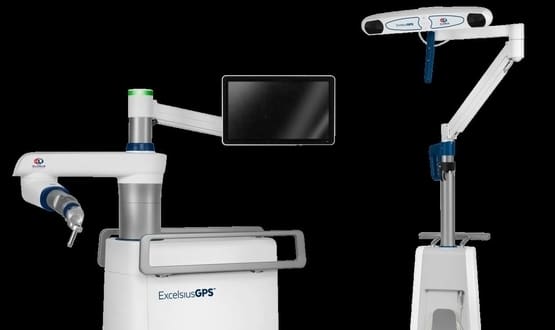Oxford University Hospitals to use robotic platform for spinal surgery
- 21 April 2022

Oxford University Hospitals has become the first NHS Trust in the UK to acquire a robotic navigation platform for spinal surgery.
ExcelsiusGPS from Globus Medical, a leading musculoskeletal implant manufacturer, is designed to improve patient safety and accuracy in the operating theatre.
The platform combines a rigid robotic arm and full navigation capabilities in one for accurate trajectory alignment in spine surgery to be achieved.
Professor Meghana Pandit, chief medical officer at Oxford University Hospitals, said: “Our spinal surgery department is an internationally renowned Spine Centre for excellence and a leader in innovative and technologically advanced clinical healthcare.
“This robotic navigation platform will further ensure the trust provides accurate and excellent care to patients and help to reduce waiting lists which also improves overall patient satisfaction.”
The benefits of the new system for patients undergoing spinal surgery and the surgeons and other members of the multi-disciplinary team in theatres, are it assists in safe, accurate placement of spinal instrumentation during operations.
It also enables more minimally invasive procedures which help to reduce blood loss, theatre time, and infection rates, allowing patients to recover more quickly, and more procedures which cause less damage to the body means that patients spend less time in hospital recovering post-surgery.
In addition, the platform increases accuracy of implant placement, reduces intraoperative radiation exposure, and decreases the amount of time spent in the operating theatre. Overall, it was developed to reduce clinical risk to patients, enhance clinical outcomes, and show that high quality care costs less.
Paul Miele, vice president of international sales at INR and Steve LaNeve, executive vice president of international sales at Globus Medical, jointly said: “It is a significant milestone for both Globus Medical and the NHS to collaborate through technology innovation that will fundamentally change the future of spine surgery in the UK.
“The robotics and navigation technology provided by ExcelsiusGPS will help spine surgeons provide smarter and consistently high-quality care for patients in one of the largest healthcare systems in the world.”
The presence of robotics in healthcare is growing at an impressive rate, with more and more organisations opting for ground-breaking technology to improve healthcare delivery.
Last month, NHS Wales and CMR Surgical joined forces as part of a national robotics assisted surgery programme and in January, Cegedim Healthcare Solutions announced integration with collection robots.





1 Comments
Does this tie them to using one company’s products?
Comments are closed.